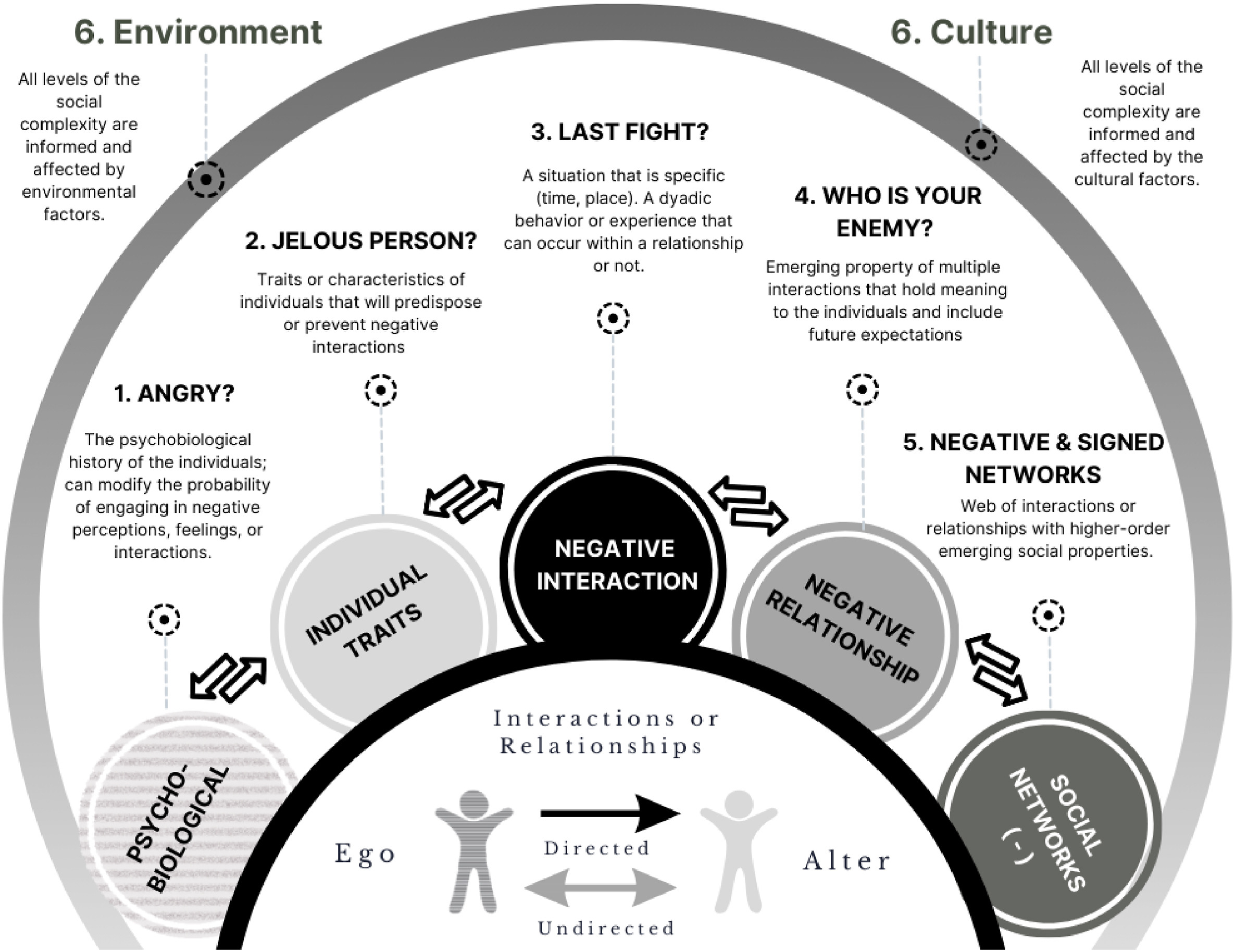
Systematic review of methods to discern antagonistic ties in social networks in community settings
Abstract
Importance: Human social networks are naturally signed, including both positive and negative ties. However, the instruments for appraising negative ties are less established than those focusing on positive, friendly connections. An improved consensus on useable instruments could support the comparability, reliability, and validity of measures used to map social networks involving negative ties.
Objective: This methodological systematic review summarizes and classifies “name generators” (NGs) used to identify negative ties, focusing on applications involving the ascertainment of face-to-face relationships in community settings, especially concerning health or wellbeing.
Method: Following the PRISMA guideline, we searched seven databases with no restrictions. Two blinded reviewers participated in screening, appraisal, and evaluation, and two different reviewers resolved conflicts. Quality assessment was assessed with the Newcastle-Ottawa Scale. We summarized study characteristics and the NGs by structure, properties, and methods.
Findings: We screened 31,350 titles and abstracts. Between 1986 and 2021, 18 studies were identified. Ten publications investigated negative ties regarding well-being outcomes, and eight analyzed the association of negative relationships with physical/mental health. Most studies were rated at least “Good” quality (n = 17), and the majority used a single NG for negative ties (n = 11). We reviewed 33 negative NGs, of which the majority (n = 22) focused on the ego’s experience of an alter (e.g., dislike), eight on describing an alter’s trait (e.g., an “annoying person”), and three on a dyadic interaction as the tie (e.g., fighting). Most NGs were used to evaluate already nominated positive ties (n = 10).
Conclusions: We observe little convergence in negative tie NG questions in community settings. Our results indicate eclectic instruments in the literature, making it difficult to evaluate what a negative tie means across diverse studies. Based on our findings, we propose a decision-making classification tree for designing negative NG. Rather than recommending which designs are most beneficial to assess negative ties, we provide a collection of empirical questions for future studies interested in this topic.
Citation:
Ana Lucia Rodriguez de la Rosa, Karina Raygoza Cortez, Alice Lu, Bianka Valentin, Amir Ghasemian, Nicholas Christakis. Systematic review of methods to discern antagonistic ties in social networks in community settings. Social Sciences & Humanities Open, Volume 10, 2024, 101039, ISSN 2590-2911.